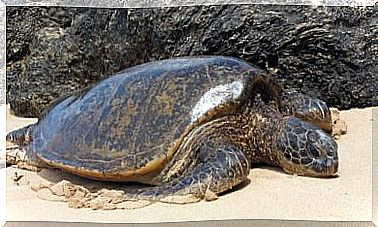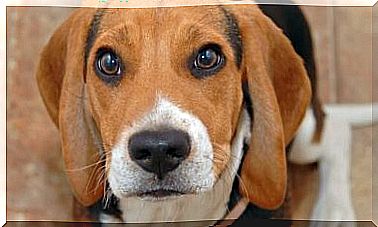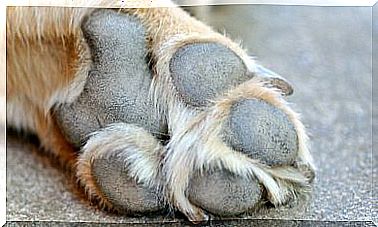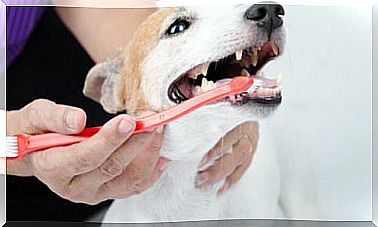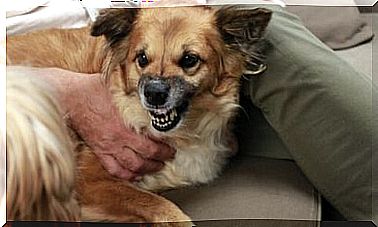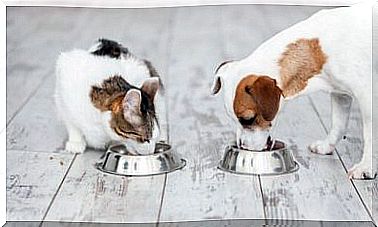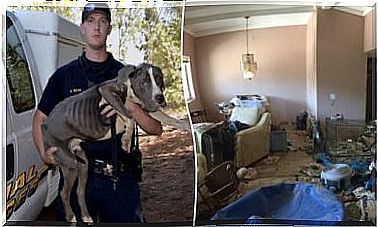Which Animals Can Suffer From Anorexia?
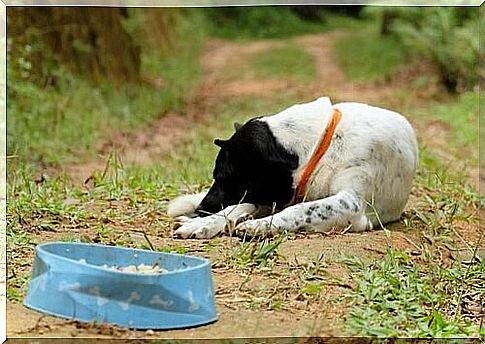
Anorexia is a term used to describe a situation in which a pet loses its appetite. In this case it may be that the animal does not eat wants or can .
Before we get into the subject, it should be clear that “appetite” and “hunger” do not mean the same thing. On the one hand, hunger is aroused physiologically by the body’s need for food; on the other hand, appetite is psychological, since it depends on memory and memories.
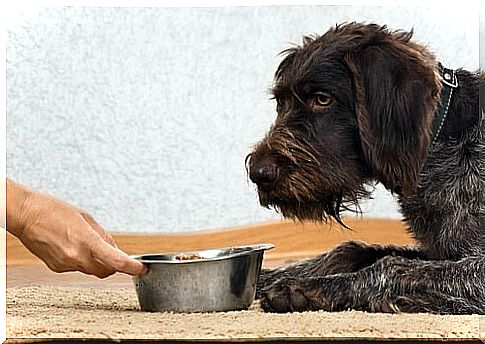
Possible causes of poor appetite in animals
There are many causes of anorexia , the most common are the following:
- cancer
- Internal parasites
- Infection of the tongue
- Inflamed wounds
- Dental disease
- Enlarged tonsils
- Foreign bodies swallowed
- Infections that cause a fever
- Any stomach or intestinal disease
Other cases where anorexia can occur:
- Stress from loud noises such as fireworks can cause anorexia.
- Territorial animals, such as cats, can stop eating if they are intimidated by another pet in the home.
- Pets with arthritis, after surgery, or in physical pain can also suffer from anorexia.
What will the vet do?
Depending on your pet’s symptoms, the veterinarian will consider different options or actions. However, you can expect the following from him:
- Most vets will start by asking a few basic questions to help understand the problem: When did you first notice poor appetite or anorexia? What is your pet’s normal appetite?
- He then does a physical examination of the animal.
- If he thinks this makes sense, he will do certain laboratory tests. Blood, stool, and urine tests can help identify suspected underlying diseases.
- He will order x-rays. X-rays can be very useful in these cases, especially if you suspect orthopedic pain, cancer, or gastrointestinal disorders.
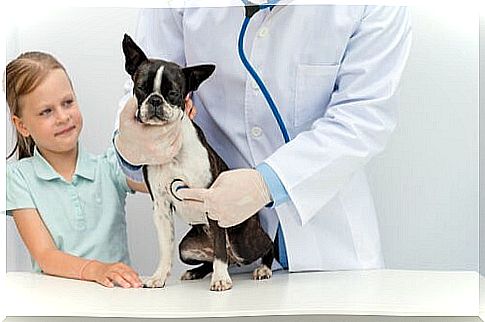
Anorexia in dogs
If your dog has temporary loss of appetite, you don’t need to worry right away. Just like us, dogs just don’t have an appetite every now and then.
Sometimes a stressful situation or an upset stomach can be responsible, but these things usually resolve on their own within a day. However, if more than 48 hours have passed and the dog still refuses to eat, you should take him to the vet immediately.
If a dog who normally looks forward to his food suddenly loses interest in it, act. This sudden loss of appetite is a sign that something is wrong.
Cats can also suffer from poor appetite
Cats enjoy life with their routine and any change can cause them to lose their appetite. Traveling, moving house, or even the arrival of a baby or new pet in the family can all be stressful. Cats often deal with stress by refusing to eat.
However, it is important to be aware that if your cat does not eat, it can be the result of illness. Infection, inflammation of the pancreas, kidney failure, cancer, and bowel problems can all cause a cat to stop eating.
Anorexia is special in snakes
With the exception of some female snakes about to lay eggs and snakes that are in a planned hibernation, it is not normal for snakes in captivity not to feed for more than a month or two. Many temperate snakes tend to decrease their food intake in the fall when the days get shorter.
Often times, snakes stop eating temporarily when they are about to molt. It should be noted that just before molting, snakes cannot see very well and are often irritable. But once they have shed their skin, their appetite returns to normal.
However, if the anorexia persists for more than a few weeks, the animal can be suspected of being infected. Anorexia is also a sign that the snake doesn’t feel safe enough in its cage.
Anorexia can be serious in rabbits
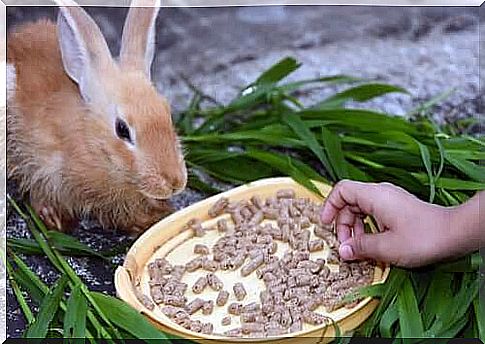
Usually rabbits want to chew and eat whatever is within their reach. However, if they suddenly become apathetic and have no interest in food, it may be an emergency.
The fact that a dog, cat, or other pet is skipping a meal may not be a cause for concern. However, this is not normal in the rabbit and there may be a problem that needs to be resolved as soon as possible.
The most common cause of loss of appetite in rabbits is a problem known as gastrointestinal stasis. This happens when peristalsis (the contractions in the intestines that push food through the gastrointestinal tract) slows down or comes to a standstill. In rabbits, this is extremely dangerous and can be fatal if not handled properly.
Final note
As you can see, there are animals that can be anorexic at certain times for a variety of reasons. It is therefore important that you understand the reasons why and when it is time to see the vet for an immediate exam.
